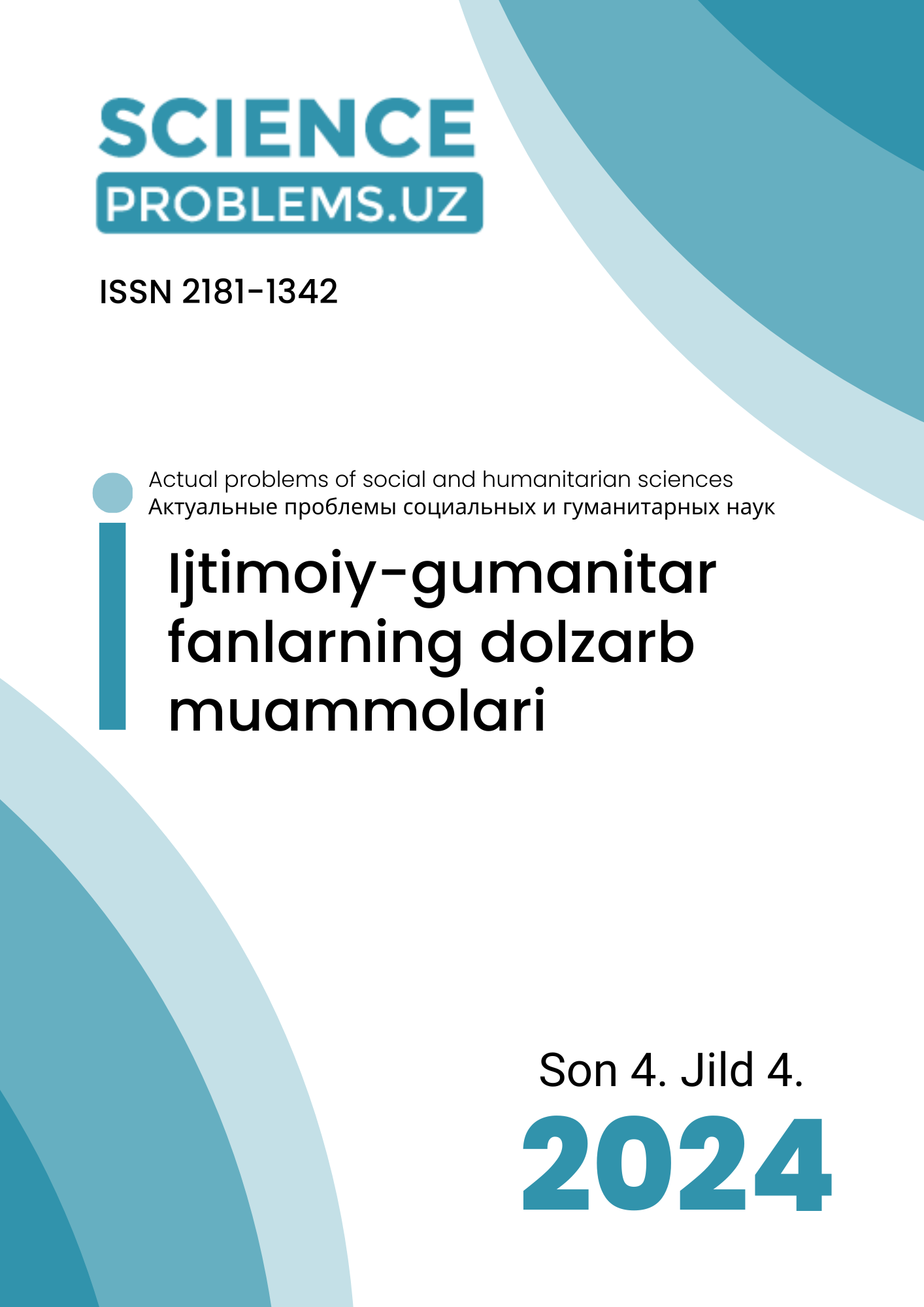EXPRESSION OF SUBJECTIVE ASSESSMENT IN ENGLISH AND UZBEK
DOI:
https://doi.org/10.47390/SPR1342V4I4Y2024N35Keywords:
subjective assessment, positive assessment, negative assessment, phonetic level, lexical toolAbstract
In the article, the category of linguistic assessment expressing the attitude to objective existence in linguistics, the means of expressing subjective assessment in English and Uzbek languages and their analysis are expressed.
References
Qambarov Gʻ. S. Baho munosabati va uning oʻzbek tilida ifodalanishi (shaxslararo munosabat asosida): Dis...filologiya fan. nomzodi: 10.02.02 / Oʻzbekiston Respublikasi Fanlar Akademiyasi, Alisher Navoiy nomidagi Oʻzbekiston Milliy kutubxonasi. - Toshkent, 2008. - 125 b.
Ostashova, O. I. Evaluative utterance in the English-speaking fictional discourse of the 19th anf 20th centuries (Humanities across the borders) / O. I. Ostashova. – Текст : непосредственный // Hornackova Klapicova, E. Smetanova, E. (eds.): Humanities Across the Borders: More Interdisciplinary Issues. – Madrid: Ediciones Xorki, 2016. – P. 149–162.
Thompson, G. Evaluation in text: authorial stance and the construction of discourse / ed. by S. Hunston and G. Thompson. – Oxford University Press, 2000. –P. 1–22.
Olimova D.B. Translation procedures describing personalities used in the English version of “O’tkan kunlar” (“Days gone by”) by A.Kodiri, International Scientific 2409-0085 (online) – 2020.- p 776
Olimova D.B. Actual Problems of Literary Translation: Study of Translation Issues from Uzbek into English , Eurasian Scientific Herald (ESH) – Belgiya – 2022. – 145 b
Olimova D.B. Communicative Aspects of Linguistic Evaluation. Central Asian journal of theoretical and applied sciences - 2023. -64-66








